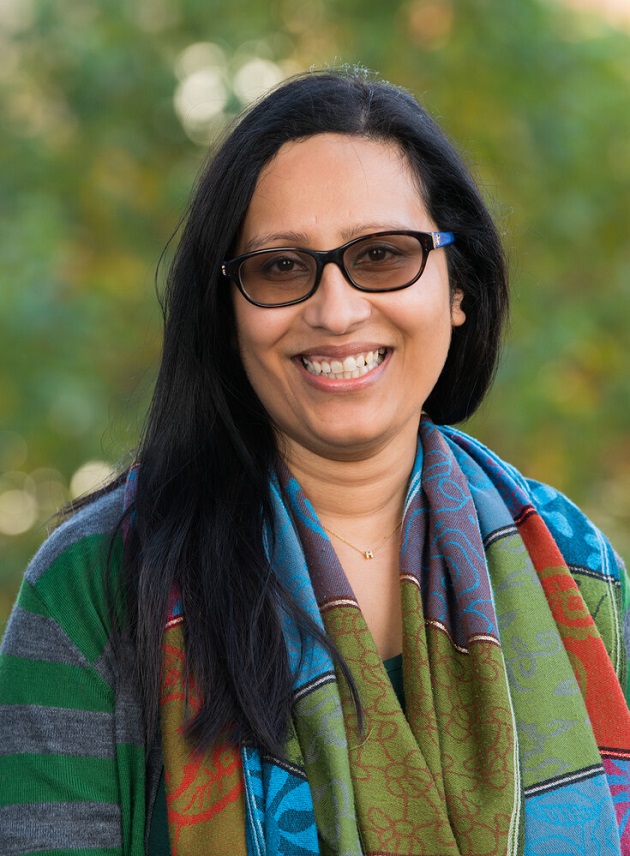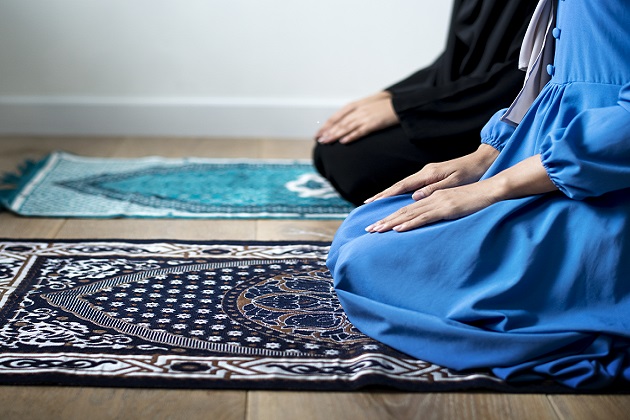Ramadan is a very spiritual time for the Muslim community. It’s the holiest month in the Islamic lunar calendar. Muslims observing fast don’t eat or drink during the day, between dawn and sunset.
This practice gives us time for self-reflection, and especially to think about others who are in need. This year, Ramadan takes place from 10 March for a month ending with Eid-Ul-Fitr (shortened to Eid) celebrations, which can last up to three days.
There are several things you can do to support members during Ramadan, from respecting their need to observe fast as well as practical tips. 
Ask away
It’s important for people to know we look forward to Ramadan. Those observing it are often happy to talk about it. Sometimes people are worried about asking questions – they’re afraid of being intrusive – but we're happy to answer queries.
We're happy to answer and share our experiences of this important time. We might come back to work after Eid with henna on our hands, and people may be intrigued by it, so feel free to take part in conversations about our faith and practices.
Everyone is responsible for increasing their own knowledge, and like any religious occasion, we should approach Ramadan with compassion and respect.
Flexible working
Without food or drink during the day, the mind and body can be affected. People might feel a bit more tired, and as such, might require more flexible working hours.
It’s important for managers to have an awareness of Ramadan and encourage staff to have a discussion in advance with them regarding their individual needs. I would recommend an open-door policy, so if someone requires adjustments that conversation can take place.
Some individuals might request more annual leave during the latter stages of Ramadan, so they can be with their families in the final days of fasting in the build-up to Eid. Depending on when the new moon is sighted, Eid may fall on a different day to the original requested leave, so people may need to adjust their leave as appropriate.
Encourage people to take their breaks
Fasting is a very individual thing. We all have different tolerances and fitness levels; some people might be fine working a long day on their feet where others might not. Encourage people to take their breaks, and managers should help them to be taken.
Additionally, those whose shifts overlap with sunset might have to plan their breaks differently so they can break their fast in good time and take time out for prayers.
Point to resources
This is a religious time and also time to spend with family. We often wake up early to eat and pray together at Sehri (Suhoor) and sit down at the table for our evening meal at Iftar.
Those who have families overseas might be looking for support from their local communities. If there are national and local staff networks available, make yourself aware of them so you can signpost to members.
Fast is opened at sunset and this meal would generally be followed by evening prayers called Taraweeh prayers, which would usually take place in mosques. For staff working late or night shifts, you can point them to facilities for prayer if they’re available – your Chaplaincy team imam can help support this.
Don’t make assumptions
There are exemptions for people who can’t fast. There might be some who are anxious about managing their fast depending on their health or prescriptions, and they many want to speak to the imams if they need more guidance on what to do in these scenarios.
Our differences don't divide us but bring us together
What’s very important is not to make assumptions about who is and isn’t fasting. Those with health issues, young children, pregnant women and breastfeeding mothers are usually exempt, but fasting is up to the individual. While some may not be fasting, they may be observing other spiritual aspects of Ramadan, such as prayers and giving to charity.
Sometimes people feel the need to apologise if they're eating in front of someone fasting. I know it comes from a place of wanting to be respectful but when you’re fasting, you're usually not worried by that.
Remember, it’s a celebration
Even though I live away from my family, I know they’re fasting and praying too, and it feels like we’re all linked together. Ramadan is a time of connection; life is busy for all of us, and for me, it’s the time of year when I can reflect on myself, how I might better myself and help others, and it’s a good moment to remind us of what’s important. It all culminates in a big feast as well, so it ends on a high.
I'm often reminded our differences don’t divide us, but bring us closer together. Fasting is something that happens in lots of religions – sometimes Christians fast during Lent – so it’s not unusual, and since this year we’re overlapping with Easter, it feels like there’s some solidarity there as well.
Useful links
- Find out more about Ramadan and Eid in 2024.
- The RCN has an advice guide on working time and breaks, with a section specifically on Ramadan.
- Learn more about what Hamira has done to improve diversity and inclusion in her workplace.








